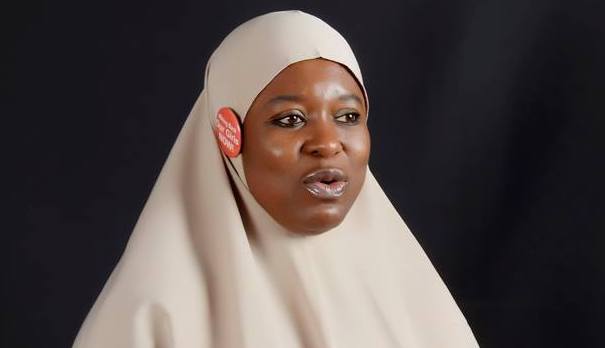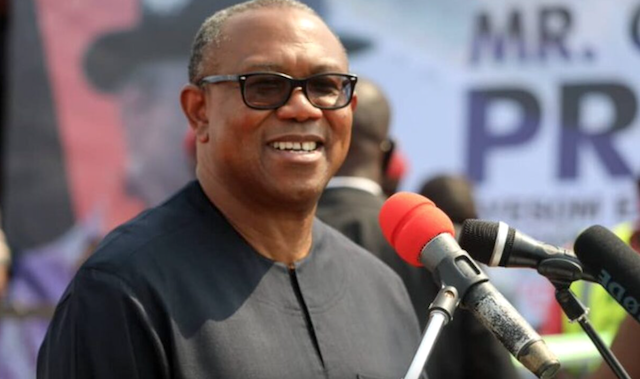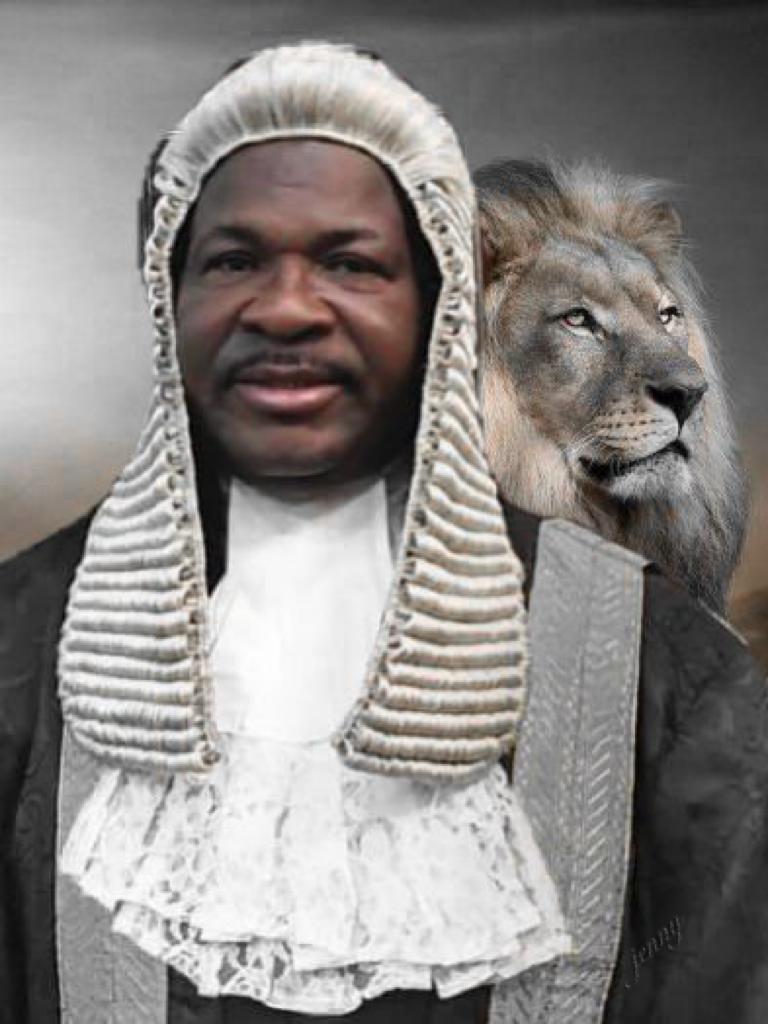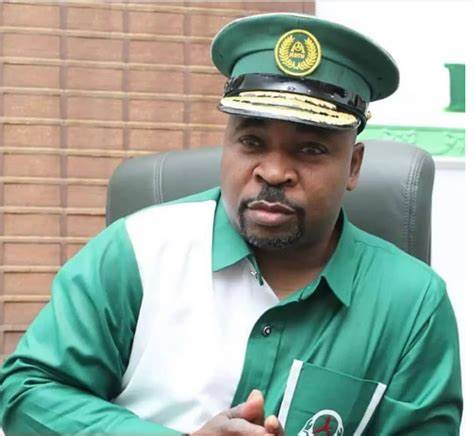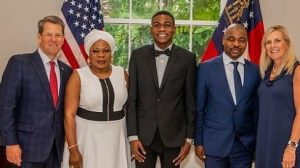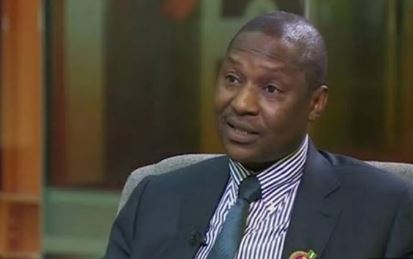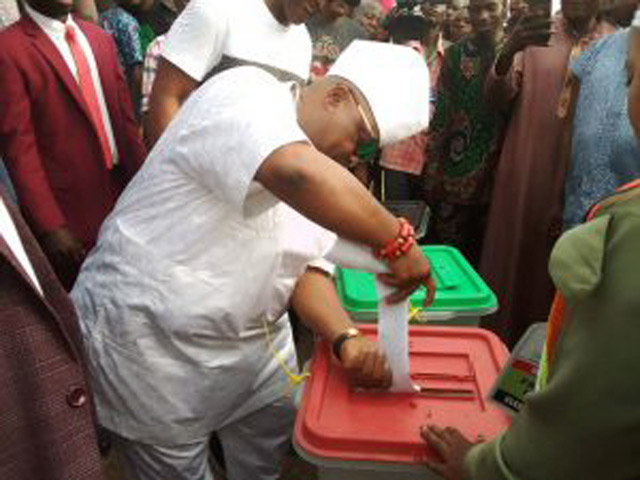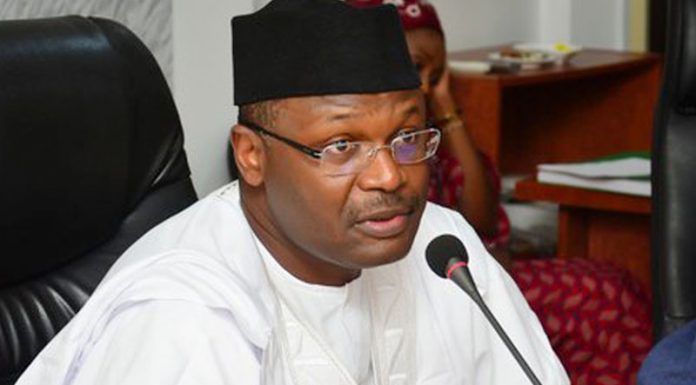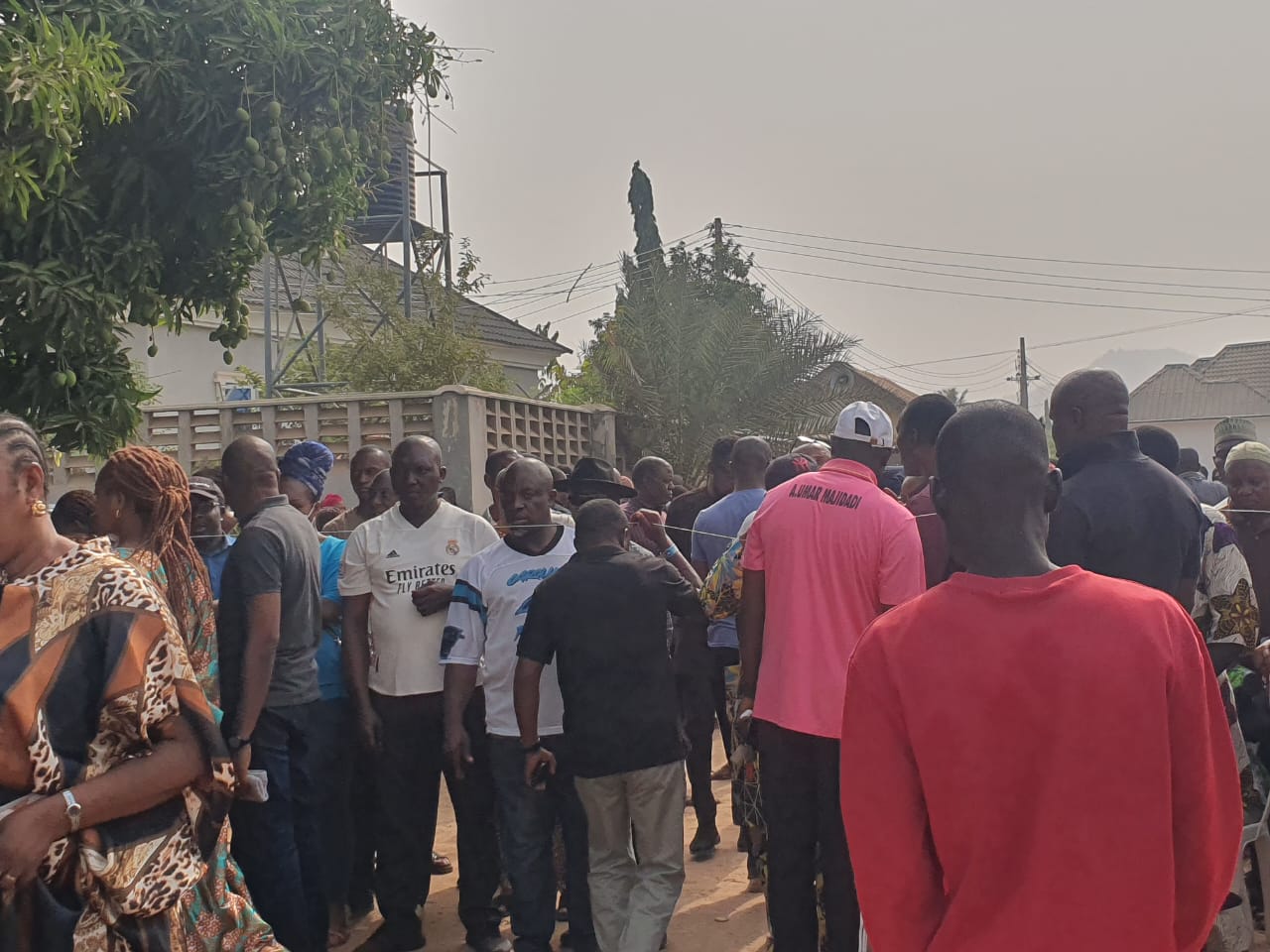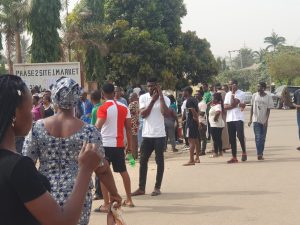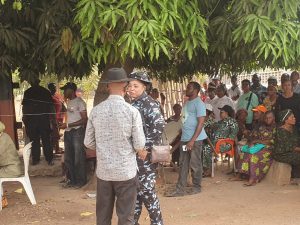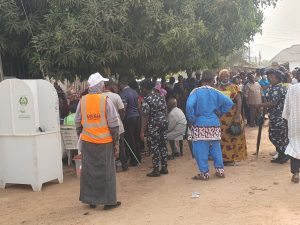BY PROF MIKE A.A. OZEKHOME, SAN, CON, OFR, FCIArb, LL.M, Ph.D., LL.D, D.Litt.
INTRODUCTION
In an article titled, “Presidency: Supreme Court has resolved FCT 25% quandary: (https:// the eagleonline.com.ng), my younger friend, Dr Kayode Ajulo, specifically mentioned my name (amongst other senior lawyers), whom he respectfully referred to as “revered to be authorities in their fields”.
He even generously described us as “legends of Inner Bar (who are) jurists who have become oracles of constitutional law whose names have refused to leave the pages of law reports”. I thank Ajulo for his kind effusive words of praises and adulation.
The last election was nothing but a sham and shambolic election of “first-kill-maim-allocate-thumbprint-ballot-papers-select-and-win-at-all-cost-and-let-them-go-to-court”. It was not democracy, but “electionocracy” and “selectocracy” in action
Were this kind recognition all he said about me and the other “oracles of constitutional law”, I would not have bothered to write this rejoinder. But, he soon thereafter most unfairly descended on us with unrestrained upbraiding as follows:
“And when they lend their respected voices to public issues, their words are taken as gospel by laymen who lack the qualification and the intellectual rigour to interrogate their opinions of these senior lawyers are Yeah and Amen”.
Section 134(2) of the Constitution must therefore be interpreted to mean that for a candidate to win the Presidential election, such a candidate must obtain 25% of the votes cast in two-thirds of all the States in the Federation (24 States); AND further, in the FCT, Abuja
“However, this electioneering season has been an eye opening one for some of us. It has been a season or unraveling and miracles as to how some legal professionals have either by deliberate action or absence of proper research, interpret one of the simplest provisions in our Constitution as regards election to the office of the President and requirements of the candidate for that highest public office in the land.
“We have seen those that should know and those who have held exalted and enviable positions hold curious opinions on Constitutional issues that embarrass our industry and harass ones intellect.
“For some of them, politics have been mixed with law in order to please certain quarters of the political class. But this is a dangerous mix. There is politics, and there is law. While they can sometimes intersect, they should not be muddled up when discussing pertinent legal issues that affect the nationhood of the country and the collective development of her citizen”.
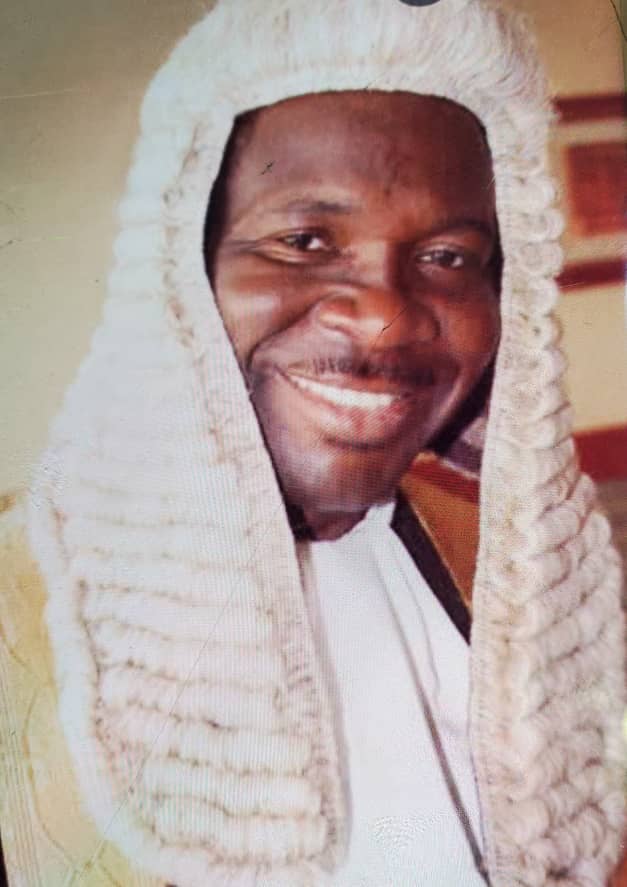
This write-up of mine should, therefore, be seen as my RIGHT OF REPLY of (see section 39 of the 1999 Constitution, as altered). I honestly believe Dr Ajulo went too far in categorizing all senior lawyers whose views are not in tandem with his as holding “curious opinions”, either “by deliberate action or lack of proper research”.
He also accused us of being tainted by partisanship or politics, merely for expressing our views. And to think that such views to him constitute “curious opinions on constitutional issues that embarrass our industry and harass our intellect”, was far too rude, self-opinionated and too vainglorious to be swept under the carpet.
He erroneously (perhaps, arrogantly), elevated his personal views over and above all others’. Where is that coming from? Narcissism? Politics? godfatherism? I do not know. Or, do you? The truth is that it is, rather, Ajulo’s views that were not only political, but heavily politicised. His entire piece read like a piece of a political party’s manifesto. It failed woefully to exhibit the attributes of the rigours and intellectual breadth and depth of scholarly research which he so gleefully talked about in his needless diatribe.
My simple take on this is that when a debate on a serious controversial national issue gets to a crescendo such as we now have it, various dimensions of and opinions on the issue under discourse must be vigorously pursued, explored and interrogated.
Consequently, as regards this raging ruckus and scrimmage as to whether the 25% votes required by S.134 (2)(b) of the 1999 Constitution ( as amended) is applicable to the FCT, Abuja, I have now decided to navigate further, some uncharted routes, by going mathematical to find X.
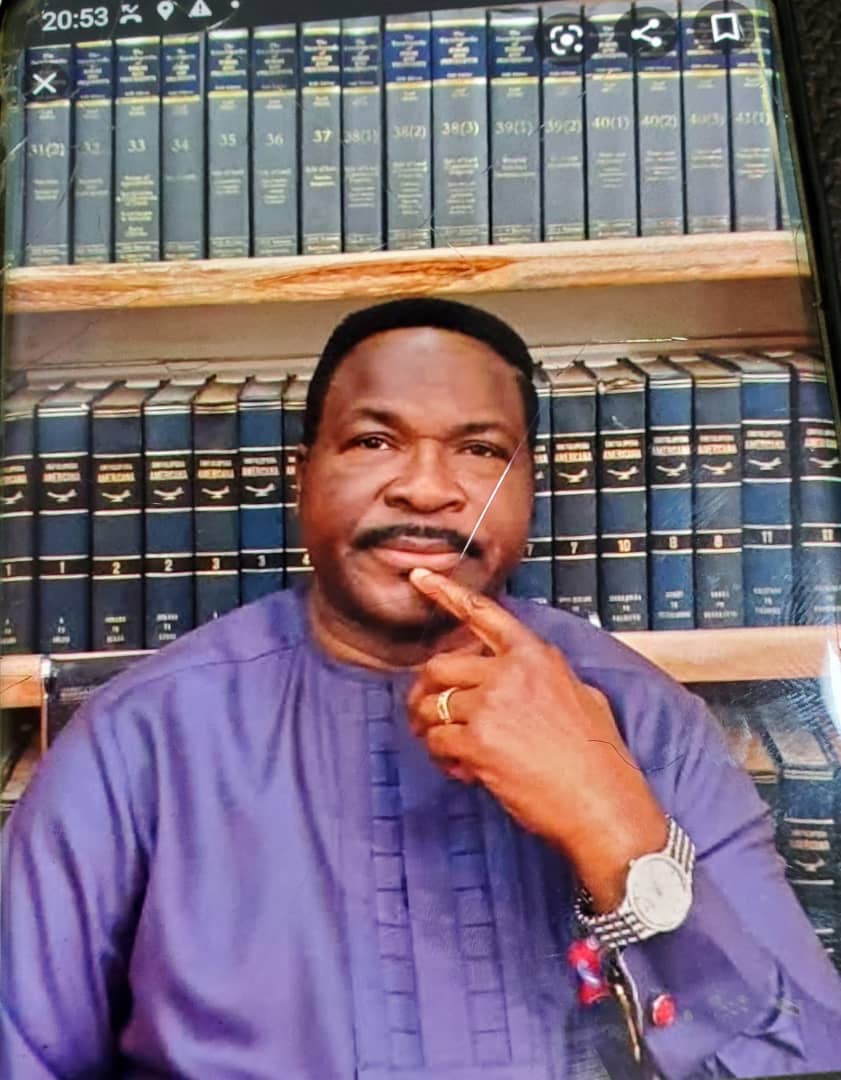
This will surely emphasize to Ajulo, and others who hold similar or same views as his, that this matter is not just about to go away, or be buried, or swept under the mat, until it is, perhaps, finally laid to rest by the Supreme Court.
Even at that, Scholars and Analysts will, for centuries to come, still interrogate it, in the same way, that the debate over the case of AWOLOWO V. SHAGARI & 2 Ors (1979) LPELR-653 (SC), still rages till date (44 years later!).
Contrary to the simplistic and cavalier manner with which Ajulo dismissed the 25% compulsory requirement (even while paradoxically also extensively discussing it himself), it will not vanish into thin air just like that! He gravely errs in thinking that the debate is simply about how to “interpret one of the simplest provisions in our Constitution”. We must tackle it headlong. Let us therefore now take the argument further. I have always believed that it is in the clash of ideas that the truth- the naked truth- finally emerges.
There is no doubt that the provisions of section 134(2)(b) of the Constitution is rooted in mathematics. It requires that a winning presidential candidate shall have “not less than one-quarter of the votes at the election in each of at least two-third of all the states in the Federation AND the Federal Capital Territory Abuja”. (Emphasis supplied).
There is no known judicial authority which has decided and settled this abstruse, arcane and enigmatic legal puzzle which is similar to the one that was thrown up in the aftermath of the 1979 presidential election
As lawyers, we should not shy away from embarking on this mathematical pathway to resolve the steaming controversy. Yes, mathematics is part of lawyers’ job in resolving disputes; and Nigerian courts are not strangers to mathematical judgments.
Afterall, the 1979 presidential election involving Shagari and Awolowo was wholly litigated, won and lost on the basis of the Supreme Court’s mathematical interpretation of what amounted then to 2/3 of the then 19 states of the Federation. The Supreme Court, in delivering judgment in favour of Shagari, ruled that the requirement of votes to win the Presidential election was 25% in 12 states, and no more.
It cautiously avoided the attendant fractionalization of Kano State, so as to avoid absurdity in interpretation. My deep research has just thrown up a judgment where the court was called upon to interpret and translate 1.00 to percentage.
The Honourable Justice Nelson Ogbuanya of the National Industrial Court, in resolving the mathematical legal question, held that “1.00 of an amount means one whole number and not a fraction; and when converted to percentage, it means 100% and not 1%”. See “https://guardian.ng/features” law Court rules that 1.00 base salary to mean 100% in mathematical judgment” – The Guardian 26th November, 2019).
Let me therefore state very clearly here, that contrary to what is being peddled by many commentators as purportedly settled judicial decisions on the status of FCT, Abuja (many of them critiquing my earlier write-up (see www.”ruebenabati.com.na-(opinion)- The 25% of FCT, Abuja conundrum-Mike-Ozekhome; Barristering.ng.com”) such decisions are not authorities for the very recondite and recherché issue posed by the 2023 presidential election results, which border on mathematical interpretation of the provisions of section 134(2)(b) of the 1999 Constitution, as altered, regarding the required percentage of votes which must be secured by a candidate in the presidential election in relation to the 36 states of the Federation and FCT, Abuja.
There is also no doubt that the FCT, Abuja, is not, strict sensu, a State (it has no State-like governance structure). However, by S.299 of the 1999 Constitution and many judicial decisions, it is “to be treated as a State”: See BABA-PANYA V. PRESIDENT FRN (2018) 15NWLR (Pt 1643)423; BAKAR V. OGUNDIPE (2021) 5 NWLR (Pt 1768) 9
There is no known judicial authority which has decided and settled this abstruse, arcane and enigmatic legal puzzle which is similar to the one that was thrown up in the aftermath of the 1979 presidential election.
But that era differs remarkably from the current scenario, as, unlike section 126(2) of the 1979 Constitution which ended with 2/3 of all the states in the Federation, the 1999 Constitution added a fresh, rider, “And the FCT, Abuja”.
Both the 1979 Constitution and the unused Babangida’s 1989 Constitution never added FCT, Abuja, since although same was created by Decree No. 6 of 1976, on February 5, 1976, by the assassinated General Muritala Mohammed, it came into existence on December 12, 1991, after the 1979 Constitution had been promulgated; but before the 1989 Babangida Constitution which never saw the light of day.
It is clear that while “2/3 of all the states in the Federation” is the variable figure, which if worked out would give 24 states and thus become a constant figure, the “FCT, Abuja”, is always the constant figure, which stands as 1
There is also no doubt that the FCT, Abuja, is not, strict sensu, a State (it has no State-like governance structure). However, by S.299 of the 1999 Constitution and many judicial decisions, it is “to be treated as a State”: See BABA-PANYA V. PRESIDENT FRN (2018) 15NWLR (Pt 1643)423; BAKAR V. OGUNDIPE (2021) 5 NWLR (Pt 1768) 9.
A Community reading of section 2(2), 3(1)(4), 134(2)(b), 297, 298, 299, 301 and 302 of the 1999 Constitution shows that the FCT is accorded a special status as quite distinct from that of a normal state; notwithstanding that it is to be “treated as a state”.
In dealing with this my new vista which now takes on a mathematical dimension, there are agreed parameters to note and apply, as answering a mathematical question requires patiently adopting methodical approach, using certain laid down formula.
This is what is called ‘operation show your work before putting QED on your answer’. The mathematical question thus posed by S.134 (2)(b) of the Constitution is this: what does it mean when it requires a winner of the presidential election to secure not less than (i.e at least) 1/4 ( 25%) of votes in each of at least 2/3 of all the states in the Federation (36 states) AND the FCT, Abuja?
The first step is to note that there are two parts- the variable and constant figures. In mathematics, while constant is a fixed figure, variable figures are imprecise. But, the variables must, nonetheless be ascertained before proceeding to conclude or ascribe a fixed figure in a given arithmetical equation.
The 25% of 24 States AND FCT, Abuja (1), will be expressed as: 25 % (24)(1) in mathematics. This is interpreted in English as 25% of 24 and 1, but not 25. The 24 represents states, while 1 represents FCT, Abuja.
The intention of the lawmaker is quite clear here
It is this inability to ascertain the variable figure that usually makes some students afraid of, and intimidated by, mathematics. In the end, they always failed to find X (the constant), with the resultant hatred for mathematics. To find X, the variable figure must be worked out and ascertained in a fixed figure, such as the constant figure.
It is clear that while “2/3 of all the states in the Federation” is the variable figure, which if worked out would give 24 states and thus become a constant figure, the “FCT, Abuja”, is always the constant figure, which stands as 1.
Working out the equation to show that the two parts (both variable and constant figures) are separate and distinct in their respective values must be applicable to the 25% votes requirement.
This would be subjected to the BODMAS (Bracket, Order of power or roots, Division, Multiplication, Addition and Subtraction) Rule. This Rule is employed to explain the order of operation of mathematical expression.
The FCT, Abuja, is the political nerve centre of Nigeria. It has been imbued with such a special status as a miniature Nigeria in such a way that any elected president must have to compulsorily win the required 25% vote in the FCT, Abuja, after winning 25% votes in 24 States
Here, Bracket plays the role of “AND”, which serves as coordinating conjunctive verb in English syntax, to ascertain the two parts separated by bracket: See BUHARI v. INEC (2008) 19NWLR (Pt 1120) 246 (for the definition “And”); and EYISI & ORS V. STATE (200) LPELR-1186 (SC) (for the definition of “Each”).
In applying this formulae:
The number of states =36;
2/3 of 36 as variable =24;
FCT, Abuja as constant =1
So, the 25% of 24 States AND FCT, Abuja (1), will be expressed as: 25 % (24)(1) in mathematics. This is interpreted in English as 25% of 24 and 1, but not 25. The 24 represents states, while 1 represents FCT, Abuja.
The intention of the lawmaker is quite clear here.
The FCT, Abuja, is the seat of power of the Nigerian leadership. It is a cosmopolitan convergence of all federating units of the nation. It is to be merely treated like a State; but not as a State for the strange purpose of counting the total number of States to become 37 instead of 36 States and the FCT, Abuja, as wrongly argued by some analysts.
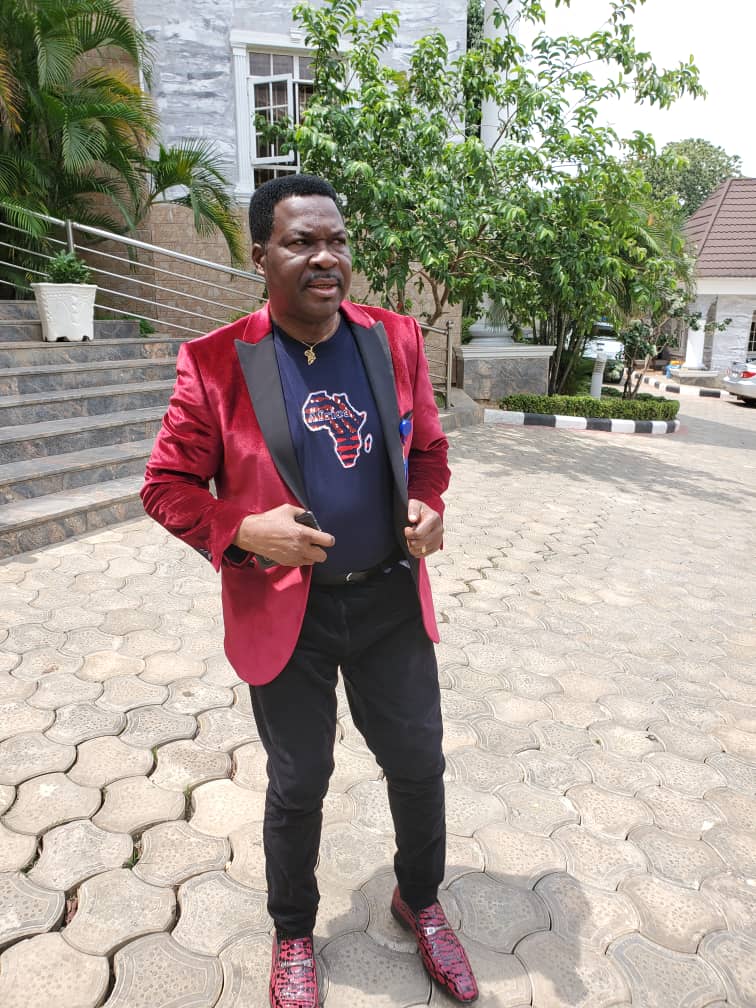
The FCT, Abuja, is the political nerve centre of Nigeria. It has been imbued with such a special status as a miniature Nigeria in such a way that any elected president must have to compulsorily win the required 25% vote in the FCT, Abuja, after winning 25% votes in 24 States.
The reasons for this are not far-fetched. FCT, Abuja, is the melting pot which unites all ethnic groups, tribes, religions, people of variegate backgrounds; and other distinct qualities and characteristics in our pluralistic society.
It is indeed a multi-diverse and multi-faceted conglomerate of the different and distinct peoples of Nigeria, which according to Prof Onigu Otite, has about 474 ethnic groups which speak over 350 languages.
Whether FCT, Abuja, is regarded as a super-state, full State, pseudo-State, quasi-State, or semi-State, is to me, immaterial. Even if it is none of these, what matters is the clear intention of the Constitution-makers
The FCT, Abuja, is thus regarded as the “Centre of Unity”, which is a testament to its inclusiveness of all tribes, religions, ethnic groups, languages; and peoples of different backgrounds.
Simply put, FCT, Abuja, is a territory or land mass that is made up of individuals from every State and virtually from all the Local Government Areas in the country. It is itself made up of 6 Area Councils, quite distinct from the 768 LGAs in Nigeria, thus bringing the total to 774 LGCs in Nigeria.
Consequently, scoring 25% of votes cast in the FCT, Abuja, is a Presidential candidate’s testament to being widely accepted by majority of the Nigerian people. The President is not expected to be a tenant in his seat of power. Will he pay rent to the 24 states he scored 25% votes? I do not know. Or, do you?
The framers of the 1999 Constitution certainly desired for Nigeria, a President that is widely accepted, with national spread; and not one that is a regional kingpin with support only from of his tribe, region, or ethnic group. The provisions contained in section 134 of the 1999 Constitution are meant to reflect this.
In the same vein, the framers of the 1999 Constitution viewed the FCT, Abuja, as a melting pot; a sort of mini-Nigeria. Thus, like a commentator aptly posited, the position or status of the FCT, Abuja, assumes that of a COMPULSORY question that a presidential candidate must ANSWER in the electoral examination. With the FCT, Abuja, serving as the seat of the Federal Government-with all ministries and MDAs situated in it – it represents a Dolly Parton’s “Coat of many colours”.
This is why the Federal Character provided for in sections 14(3),(4); 153(1); and 318(1) of the 1999 Constitution is also reflected in the administration of FCT, even though the Gbagyis are the original Aborigines of the FCT.
The only logical conclusion that can be drawn from the above is that sections 134 (2)(b) and 299 are not mutually exclusive or contradictory, as some commentators posit. Rather, section 299 actually supports and complements section 134.
Whether FCT, Abuja, is regarded as a super-state, full State, pseudo-State, quasi-State, or semi-State, is to me, immaterial. Even if it is none of these, what matters is the clear intention of the Constitution-makers.
Had the lawmakers intended that the Federal Capital Territory, Abuja, will be treated simply as a “State” and no more in section 134(2)(b) of the Constitution, they would have simply stopped there. There was no need to specifically add the new phrase, “AND the Federal Capital Territory, Abuja”, as in section 134(2)(b).
The Constitution would simply have provided for “two-thirds of all the States in the Federation”, and stopped there. But, it did not.
From a historical perspective (I am a student of history), recall that the AWOLOWO V. SHAGARI case and section 299 of the 1999 Constitution which states that its provisions shall apply to the FCT, Abuja, “as if it were one of the states of the Federation; including the BABA PANYA and BAKARI cases (supra), often cited with éclat, but out of context, did not deal with the issue of elections, or what percentage of the votes was expected of a presidential candidate.
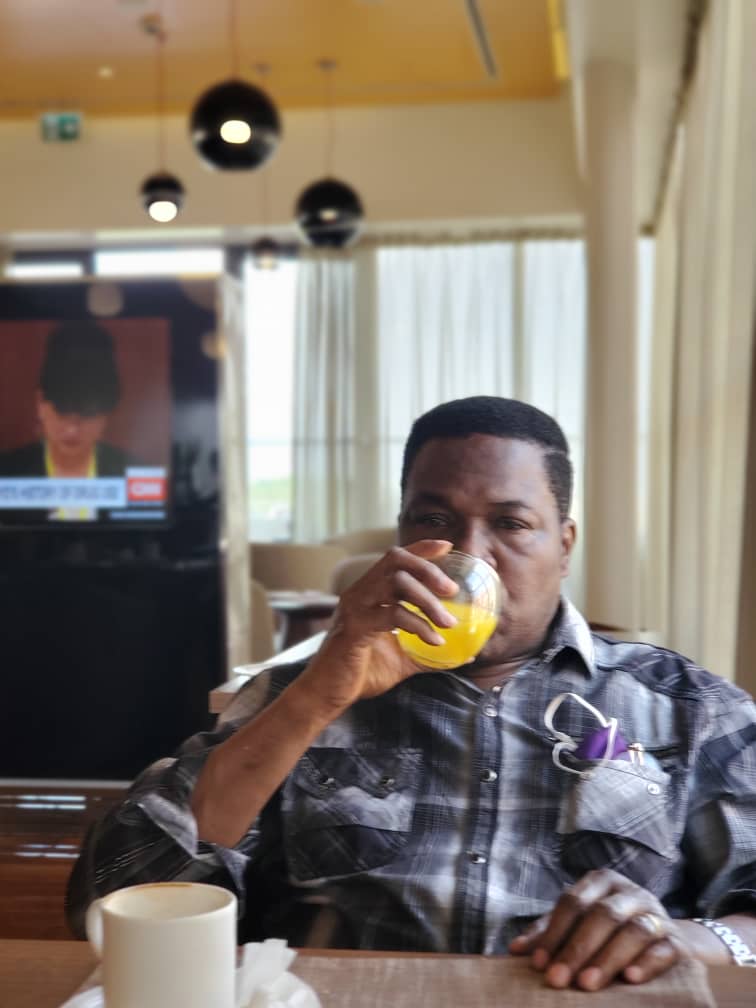
They merely dealt with the issues that were presented in those cases. No more. It is trite law that a case is only an authority for what its peculiar facts present: BABATUNDE v. PASTA (2007) 13 NWLR pt. 1050 pg. 113 @ 157; ADEGOKE MOTORS v. ADESANYA (1989) 3 NWLR (pt. 109) pg. 250; UWUA UDO v. THE STATE SC. 511/2014; SKYE BANK PLC. & ANOR. V. CHIEF MOSES BOLANLE AKINPEJU (2010) 9 NWLR (Pt LL98) 179; OKAFOR V. NNAIFE (1987) 4 NWLR (Pt 64)129; PDP V. INEC & ORS (2018) LPELR-44373(SC); LAGOS STATE GOVT. & ORS V. ABDULKAREEM & ORS (2022) LPELR-58517 (SC); ILA ENTERPRISES LTD & ANOR V. UMAR ALI & CO. NIG LTD (2022) LPELR-75806 (SC).
It is my considered opinion that the scope of consideration of the FCT, Abuja, as a State, only applies to the enjoyment and vesting of executive, legislative and judicial powers by relevant bodies in the FCT. It does not apply to all matters, extents, and for all purposes
For example, when section 48 of the 1999 Constitution provides that the “Senate shall consist of three Senators from each state AND one from the FCT, Abuja”, why didn’t these canvassers of FCT, Abuja, being merely a state, argue that once we have three Senators from “each state”, we should discard the “AND” which gives one Senator to the FCT, Abuja, and thus deprive the FCT, Abuja, of its Senator?
This provision is one amongst several others which shows that the FCT, Abuja, is to be treated distinctly and separately from the other 24 states. There is no ambiguity in section 134(2)(b) such as to bring in aid, existing canons of statutory interpretation, such as the “Golden Rule”, “Mischief Rule”, etc.
It is axiomatic that all sections of the Constitution must be wholly and holistically construed together so as to avoid leaving out some portions, or rendering them nugatory.
See THE ESTATE OF ALHAJI N.B. SOULE v. OLUSEYE JOHNSON & CO & ANOR (1974) LPELR-3169 (SC). The reason is that law makers are presumed not to use superfluous, otiose or extravagant words in provisions of the Constitution or statutes which they make.
CONCLUSION
It is my considered opinion that the scope of consideration of the FCT, Abuja, as a State, only applies to the enjoyment and vesting of executive, legislative and judicial powers by relevant bodies in the FCT. It does not apply to all matters, extents, and for all purposes.
Further, an interpretation that Section 299 of the Constitution applies for all purposes is too narrow. It is not holistic or inclusive. It will render many other parts of the Constitution redundant, futile, unproductive, meaningless and therefore, unnecessary. Certainly, such could not have been the intention of the Legislature or law makers.
Section 134(2) of the Constitution must therefore be interpreted to mean that for a candidate to win the Presidential election, such a candidate must obtain 25% of the votes cast in two-thirds of all the States in the Federation (24 States); AND further, in the FCT, Abuja.
The new refrain in town has since become “GO TO COURT”; an obvious addition to our warped political lexicon. The election in my humble view, was the shame of a country that has been held down for decades by the jugular by insensitive and insensate elite state captors
This is a compulsory requirement for a valid return as President. It seems to me that INEC was not properly legally guided when it declared a President-elect. The Nichodemus announcement and declaration was obviously too hasty, premature and rash.
A great writer (Onwa Nnobi) was most apt when he stated: “If 5 credits AND English Language are prerequisite to gaining admission into a higher school of Learning; and you make 10As in 10 subjects, but get F9 in English Language, does it qualify you for admission? It is not just commonsense and logic. It is incontrovertible”. I cannot give a better example. But, let me try two more examples of mine:
If I request to see 24 Corpers in my law firm AND OKON, it means I want to see 25 persons in all; but Okon must be one of the 25 persons. So if 24 or 25 persons in my law firm show up, without Okon, have I had all the persons I wanted to see?
The answer is NO. To satisfy my request, Okon must show up in addition to the 24, thus making the 25 persons I desire to see. Okon is a Constant; 24 Corpers is a variable. The variables must be worked by BODMAS-Rule to find the constant.
As a second example, if I tell my dear wife to treat Andrew (my ward living with us) “like my son”, does that really make Andrew my biological son? I think not. Let me end this piece in response to Ajulo’s apophthegym of the “unwrinkled face (which) is not good for a resounding slap” with some words of advice.
It is the common man on the street that suffers this dangerous game of deliberate obfuscation and misinterpretation of our laws
Ajulo ought to know, from the deep recesses of his conscience and inner mind that what we witnessed on 25th February, 2023, was not democracy in practice. Abraham Lincoln, who made his famous Gettysburg speech on 19th November, 1863, had described democracy as government of the people, for the people and by the people. He must be turning in his centuries-old grave.
The last election was nothing but a sham and shambolic election of “first-kill-maim-allocate-thumbprint-ballot-papers-select-and-win-at-all-cost-and-let-them-go-to-court”. It was not democracy, but “electionocracy” and “selectocracy” in action.
The new refrain in town has since become “GO TO COURT”; an obvious addition to our warped political lexicon. The election in my humble view, was the shame of a country that has been held down for decades by the jugular by insensitive and insensate elite state captors.
It was a purported election in which a supposed Nigerian president-elect allegedly scored 8,795,721 (only about 9.409% of the registered 93.40 million voters).
And WITHOUT THE FCT, Abuja! So, that means less than 3.998% of the entire population of the Nigerian people comprising of 220.075.973 million people as at 27th March, 2023- the very people he seeks to govern!
That is a mere 454,163 votes more than Chief Abiola’s votes scored about 30 years ago, when Nigeria’s population was only 102.8 million people.
It was virtually half of President Buhari’s 15,191,847 votes in 2019; and even far less than the votes of the then runner-up, Atiku Abubakar, which was 11,262,928.
What an election! If Ajulo does not recognize this odorous putrefaction and stone-age retrogression, in our electoral system, then it is him, more than any other lawyer, that belongs to one of the “senior lawyers” he so derogatively, perjuratively and derisively referred to as those who “give certain legal opinions that they do not believe in, just because they have been tainted by politics”.
I totally agree with his conclusion that “it is the common man on the street that suffers this dangerous game of deliberate obfuscation and misinterpretation of our laws”.
Welldone. Mercifully, I am very proud to announce to Ajulo and others that going by my very well known antecedents which are self-evident (simply google me),
I do not belong to such a lowly class of ego-masseurs. I am certainly not one of those cheap obsequious fawners, brown-nosers, or toady characters that hang around political merchants and buccaneers of corridors of power.
Not being a card-carrying member of any of our existing political parties, I am simply a patriotic Pan-Nigerian who interrogates issues and speaks truth to authority and power, with history and posterity as my goal.
My parting proverb to Ajulo, more in the form of an anecdote or epigram, is this: “Once upon a time, an exuberant youth beat his drum so loudly, proudly, ceaselessly and fascinatingly with such reverberating noise that an elderly man sitting nearby told him to reduce the noise.
“The youth told him pointedly that he bought the drum with a huge sum of money. He exhibitionistly announced the name of the rare drum.
“The elderly man smiled, shook his greying head slowly, and calmly told the young man the name of the very animal whose skin was used to make the drum. Let us watch our words and actions, no matter how trying and tormenting the times are.”

